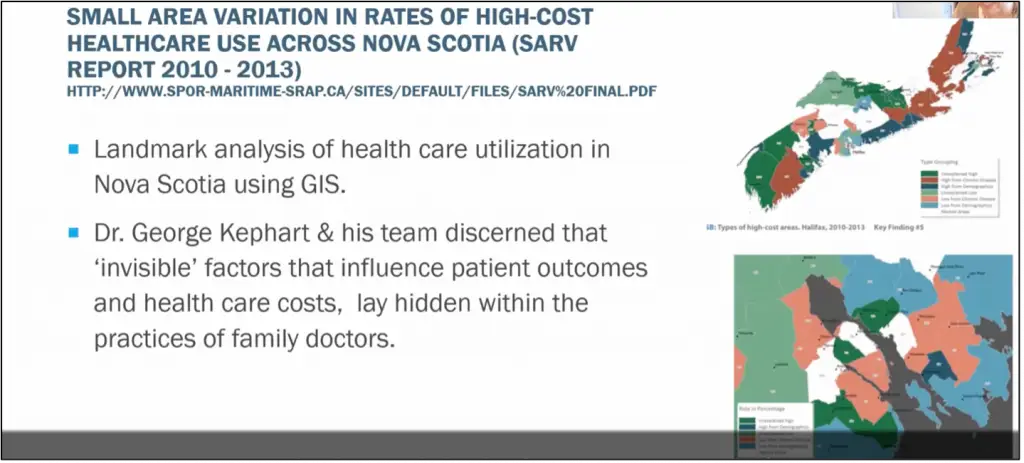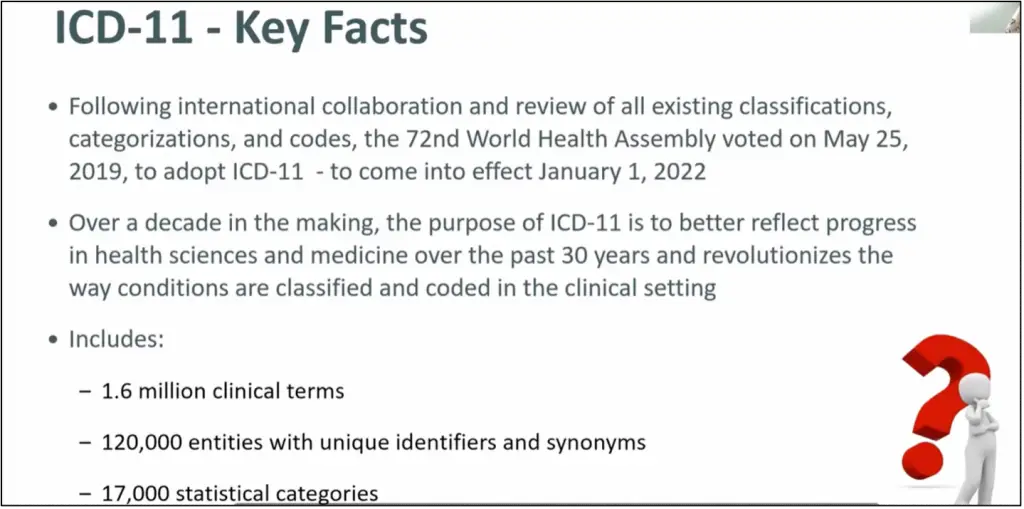An overview of HIP Week 2021: Futureproof
From October 4–8, 2021, we held HIP Week 2021: Futureproof. The week was a celebration of health information professionals and their work in improving health care delivery for Canadians and speculated on the future of data privacy, leadership in health care, and artificial intelligence. We explored the true meaning of allyship with Indigenous communities, the real impact of the health information profession, and the need for improvements in health care.
The first day began with a moving session hosted by Jeff Nesbitt, CEO and registrar of the Canadian College of Health Information Management and CHIMA: ‘Falling Through the Cracks: Greg’s Story.’ Our speakers for the session, Teri and Dave Price, shared Greg Price’s story through the health care system. Greg’s story highlighted the cracks in the flow of health data between those in the circle of care.
“Incredibly impactful and grounding messages from the Price family that remind us that at the very core of what we do each day are patients and their families.”
– TARA CHORNEY, CHIM, ON ‘FALLING THROUGH THE CRACKS: GREG’S STORY’

In the next session on mapping out Canada’s digital public health future, Alexander Watts and Dr. Ajantha Jayabarathan showed how location intelligence provides insights on social determinants of health that improve the preparedness of clinicians and the quality of public health care. This session also highlighted Esri solutions that specifically helped at the height of the pandemic.
During the last session of the day, speakers from the Canadian College of Health Leaders (CCHL) showcased pathways to achieving the Certified Health Executive (CHE) designation. Also highlighted during this session were details of a new partnership with CHIMA.
“Excellent speakers with real-world experience and informative slides. Their positivity and optimism for the practical application of these new tools are greatly appreciated.”
– Marianne Luettschwager, CHIM, on ‘Mapping out Canada’s digital public health future’
Day two began with a fireside chat facilitated by Nicola Sahar, MD of Semantic Health, on the impact of coding across hospitals. This session shared insights on the needs and challenges of health care institutions in implementing coding. Our speakers, Karim Jessa, Peter Bak, and Darren Larsen, identified the need for proper filters to sift through the vast data clinicians receive, mentioned the growing demand for more efficient coders, and encouraged us toward “using data for clinical good.”
In the next session on future-proofing health information management beyond the pandemic, Erin Head talked about shifting toward a proactive model that provides “more personalized treatment[s] and medicine options to optimize … care outcomes.” Erin underlined the problem of duplicates in the master patient index during the pandemic and noted its effect on data integrity and patient safety, stressing the need for health information professionals to be the gatekeepers of this type of data. To avoid similar problems, Erin highlighted the value of operational efficiency optimization tools such as artificial intelligence (AI) and business intelligence (BI).

During the session led by the Canadian Institute for Health Information (CIHI), our speakers, Sharon Baker and Janice MacNeil, shared the many advantages and features of ICD-11 and its deployment in Canada. They also remarked that Canadian coding standards require updates to achieve specificity and consistent capture. Based on a Canadian stability analysis comparing content assessment between ICD-10-CA and ICD-11, the next step in implementing ICD-11 will focus on determining the required level of specificity “and whether pre-coordination or a mandatory post-coordination is required to support consistent data capture.”
“Excellent presentation of a difficult topic, bringing in hospital and community-based perspectives, using informatics experts, and digital hospital CHIO perspective.“
– Ajantha Jayabarathan, MD, CCFP, FCFP, on ‘Investing in coders: The impact of coding across the hospital’
Day three began with the exploration of artificial intelligence in health care. Rongzhu Wen from the London Health Sciences Centre (LHSC) led the session by sharing the features of an AI-enabled health care delivery, the driving force of AI application in health care, a 4-step framework for predictive analytic success, an example of AI in the early prediction and diagnosis of sepsis, and crucial HIM responsibilities in the successful application of AI.
The conversation on AI in health care continued in the panel discussion led by Brad Keates from Canada Health Infoway: ‘Embarking on an AI-enabled health care solution journey (0151)’. This session featured three speakers: Carole Piovesa, Dan Bond, and Dr. Rashaad Bhyat. During this session, Brad gave an overview of the AI toolkit developed by Canada Health Infoway for new implementors of AI in health care. Dan shared the story and process behind EVA (an online tool providing mental health resources), and Carole gave practical insights into the regulatory processes surrounding AI implementation in health care. Dr. Rashaad also discussed AI implementation from a physician’s perspective.
During our next session, ‘How to apply data governance standards in your organization (0142)’, we set out to examine the current standards landscape and the application of these standards in an organization. Our speaker, Matt MacNeil, underscored the significance of standardizing data governance lexicons to prevent ambiguity. Matt also emphasized the importance of pre-approval reviews of standards by the public and technical committees.
Participants got the opportunity to network and improve their professional reputation in the ‘Making a lasting impression with executives’ session. This session, presented by Kaitlin McNamara, marketing and community manager at CHIMA, featured breakout rooms where participants practised their networking skills. The breakout rooms were facilitated by chapter volunteers from coast to coast to coast: Kait Greer, Amanda Parsons, Roberta Green, Tracy Burt, Anna Shule, Rushik Patel, and Ridwan Jimoh.
“A very well-organized session that offered the opportunity to network and collaborate. Thank you.“
– Anonymous on ‘Making a lasting impression with executives’
On October 7, the day began with an educative session led by Tia Kennedy. Titled ‘Allyship with Indigenous communities,’ this session revealed areas for collaboration with Indigenous communities and social determinants of health that affect the quality of care of these communities. Tia shared the importance of understanding the mistrust of Indigenous communities in the health care system as the first step to building new relationships.
Next, representatives from the International Federation of Health Information Management Associations (IFHIMA) shared global HIM experiences during the pandemic. Dr. Guillermo Paluzie and Mandy Burns discussed how their organizations and countries managed the pandemic from a health information perspective: In Spain, the shared medical records platform permitted interoperability between all centers in Catalonia, and in the UK, Mandy reported on the work situation of health information professionals who grappled with lockdowns, access to paper records, insufficient technological support, and inadequate coders and analysts to process vast amounts of data.
“Thank you to Tia for being so brave and sharing her story and complications with the health care system. It is crucial for the health care system at all levels to understand the impacts of biases and systemic issues that are largely invisible to the majority of health care workers. Knowledge and understanding are the first steps to change.” – Tabitha Auton, CHIM, on ‘Allyship with Indigenous communities’
In the applied track of the day, Julie Pursley from the American Health Information Management Association (AHIMA) led us through a conversation on ‘Data governance of social determinants of health.’ Julie spoke on “improving our focus on whole-person health care” and shared the results of a 2020 AHIMA survey on social determinants of health (SDOH). The survey revealed the following barriers to collecting SDOH data:
- Lack of organizational policy around data collection
- Lack of discrete electronical health record fields/functionality
- Coding productivity
- Lack of financial incentives
On the last day of HIP Week 2021, Christine Sham and Dragana Lojpur from the Ministry of Health Ontario and Sue Schneider from Ontario Health shared details of the Digital First for Health strategy and Ontario’s patient summary updates. The presentation highlighted five ambitions of the Data Stewardship Strategic Working Group, one of the working groups launched by the Ontario Health Data Council to address the Dialogue on Data:
- Improving understanding and establishing clear accountability of health data
- Harmonizing required data activities
- Focusing on fair, ethical, and responsible data uses
- Building a more mature data governance capacity
- Ensuring compliance and control over data management
At the session sponsored by 3M, participants saw the application of 3M’s computer-assisted coding tools. This session was led by Anthony Persaud, with a question-and-answer session including other speakers: Ayan Chowdhury, Jill Campbell, and Kim Myrick. Anthony shared the importance of coding, highlighted a few problems with coding implementation, and explained the impact of coding on the health care sector.
“Great presentation and discussion. Interesting insights were provided regarding future opportunities and direction. It seems there is a lot of work going on behind the CHIMA scenes that are worth being aware of.”
– Laura Krawec, CHIM, on ‘What is the real impact of health information?’
The week ended with two discussions facilitated by our CEO and Registrar, Jeff Nesbitt. One was a conversation with Dr. Vivek Goel on overcoming Canada’s privacy chill through data stewardship. This discussion highlighted the work of the pan-Canadian Health Data Strategy Expert Advisory Group and critical issues in the establishment of data stewardship and information sharing.
The final session featured Matthew Aubie, creative director of Aubs & Mugg Inc. During this session, we explored the real impact of health information through survey results and qualitative analysis, identified ways to build bridges between the profession across sectors, and officially closed the conference.
Thank you to all HIP Week 2021 sponsors: Semantic Health, Esri Canada, Canadian Institute for Health Information, 3M, Canada Health Infoway, Iron Mountain, and thePersonal.
Attendees who purchased a full pass for the live event can access HIP Week 2021 recordings via their dashboard until October 10, 2022. CHIMA’s professional members can manually submit CPE activities for credit.
If you were unable to attend the live event, individual sessions are now available through our learning management system. Please browse the professional development area for topics that you’re interested in learning about. CPE credits will be automatically applied for CHIMA’s professional members who complete these sessions.






